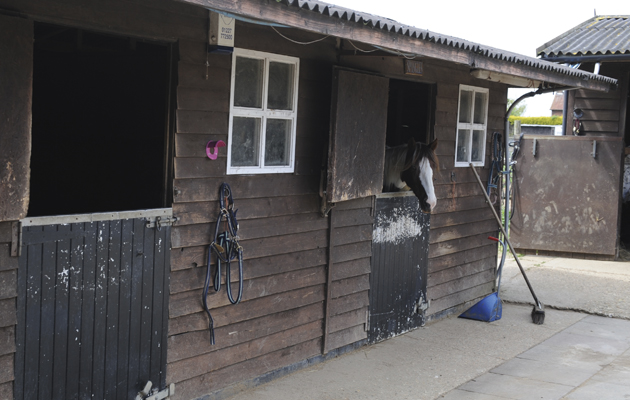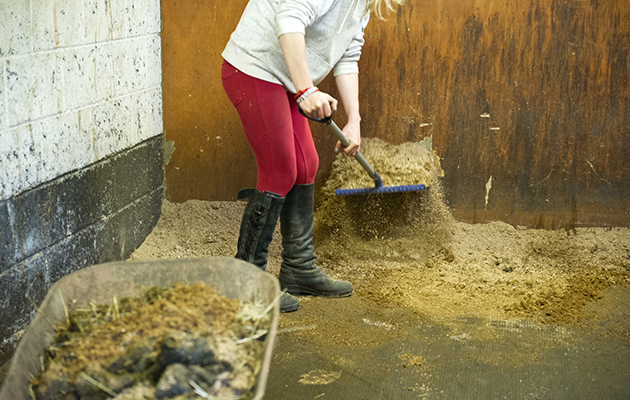A spate of recent legal cases has prompted a lawyer to explain why having written terms agreed is essential for all parties involved in livery services. H&H finds out more...
The importance of written livery contracts to all parties has been highlighted by a series of recent legal cases.
Barrister Simon Bell, of Kent-based Knights Solicitors, told H&H his practice had been involved in a number of disputes, in the most recent of which the livery provider had tried to keep possession of his client’s horses.
He explained that his client had been evicted from her previous yard, so the defendant offered space for 11 horses. The defendant served an abandonment notice on the herd under the Control of Horses Act, and when the allotted time had passed, claimed ownership.
But Mr Bell said the defendant sent the notice to his client’s former address, knowing she was no longer living there, and that the pair had agreed the horses would be taken in, but that the existence of a verbal livery agreement was still to be decided by a court.
“Our case was that the procedure had been manipulated to try to retain the horses,” he said. “She also tried to retain the horses on welfare grounds, on the basis of our client’s ability to care for them, and owing to unpaid livery. It’s been a bitter case.”
The client now has her horses back, although the costs issue is yet to be decided, but but Mr Bell said the case highlights a number of issues. There is no basis in law for a yard owner to hold horses on welfare grounds, as they do not have authority, while the Control of Horses Act had not been followed appropriately.
“We’ve had a spate of these cases, on the basis that some people offering livery are doing so on the basis of a verbal agreement,” he added.
“That’s something that should cause concern as there will always be an underlying reason, and if someone doesn’t pay, you could end up in court with one person’s word against another’s. If you’ve got something in writing, and all parties comply, there’s no issue. Protect your money and property, and insist on a written agreement; that way, you know what you’re signing up for.”
A spokesman for the British Horse Society (BHS) told H&H written contracts should always be in place to protect all parties’ interests – and horse welfare.
“Contracts should clearly outline a workable communication and action plan that will be followed in the case of emergencies; for example, ensuring the horse owner immediately informs the yard owner of any change in contact details, and provides the written details of a ‘go-to’ contact that the horse owner authorises to make decisions for them should they be uncontactable – similar to a next of kin arrangement,” she said, adding that the plan should include clarity on permission to discuss and attend the horse with its vet practice.
“Each emergency will differ, but horse welfare should always remain at the forefront,” the spokesman said, adding that the BHS has template livery contracts available and is happy to advise.
Jen Baldwin, who runs a livery yard in Kent, says she has always had written contracts in her 25 years’ trading.
She told H&H hers cover issues such as permission to call the vet if necessary and the owner cannot be contacted.
“Mine include yard rules, too, such as no free-schooling, and if people express an interest in coming here, I give them a copy to read first, so it’s all down,” she said.
“Before I had a decent one, I had non-payers, and if the contract had been better, as it is now, I wouldn’t have lost the money. Now, it’s about as watertight as it can be.
“It’s about safety. It’s a litigious world these days and you need everything covered.
“My liveries are all lovely now and none of them would dream of being anything but good-hearted but you never know what’s round the corner.”
You may also be interested in…

Legal case over horse being put down sparks warning *H&H Plus*

A horse has been abandoned on my livery yard. What should I do?
When a horse is abandoned on a livery yard, it’s a complex issue to solve. Take a look at this

What is retirement livery and would it suit me and my horse?
Retirement livery yards typically specialise in caring for old or injured horses, providing a useful service for owners without their

8 times outstanding livery yard owners went above and beyond
We asked you to give us examples of when your livery yard owners went above and beyond the call of

The H&H guide to types of livery
Unless you’re lucky enough to keep your horses at home, the chances are that at some point you’ve had to

6 things livery yard owners really, really hate – so don’t do them!


